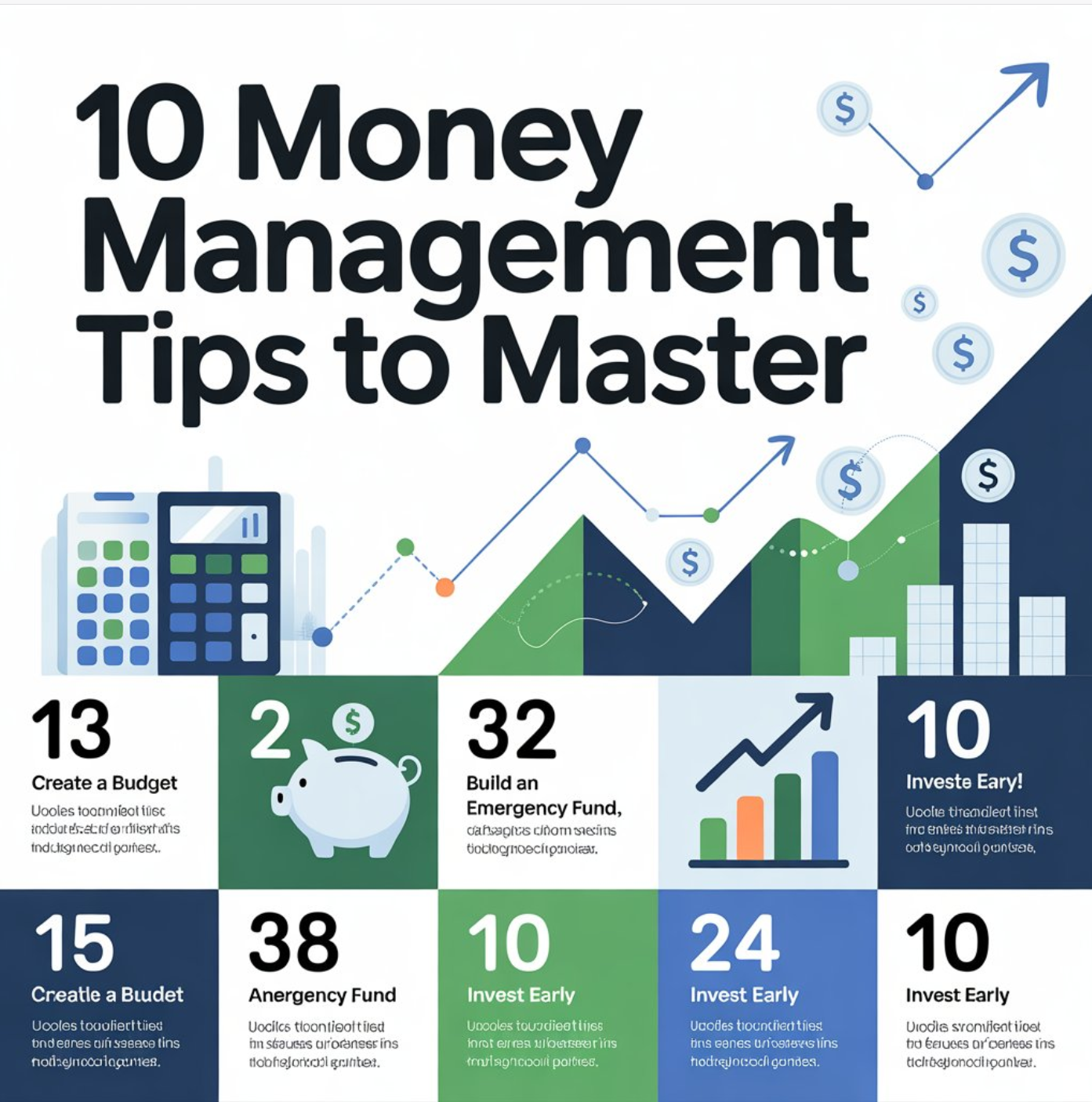Your Money in 2025: 10 Simple Ways to Get Ahead

We’ve all been there – staring down a pile of bills, wondering how the heck we’re going to keep up with our finances. The world of money is a whirlwind, with new tech, shifting markets, and a constant stream of news that can leave your head spinning. But amidst all the chaos lies a huge opportunity.
The good news? You don’t need to have a Wall Street pedigree to build a solid financial future. By mixing some timeless principles with the smart new tools of 2025, you can take control of your money with confidence, even if you don’t have a clue about all the latest jargon.
Here are 10 practical strategies to help you do just that.
1. Let Automation Do Your Budgeting for You.
No more fiddling around with spreadsheets and sticky notes – in 2025, your budget can practically manage itself. New AI-powered apps give you a crystal-clear picture of where your money is going, automatically sorting your spending and finding ways to save. Barry Glassman, a financial expert, puts it simply: “It all starts with knowing where the money is going – and I tell people to track their spending for a bit. Seeing the truth can be eye-opening”.
2. Get Saving on Autopilot.

There’s a simple way to save money, and it’s not exactly rocket science: just make sure you get to your savings before you can spend it. Setting up automatic transfers from your checking to your savings or investment account is a game-changer. It’s like putting your savings on cruise control. And the best part? You can even use apps that quietly save small amounts from your cash flow that you won’t even miss.
3. Take On High-Interest Debt Head-On.
Debt, especially from credit cards, can feel like a weight dragging down your finances. Your priority should be to chip away at these high-interest balances. While you’re doing that, tools that can help you free up extra cash for debt repayment, like apps that cancel unused subscriptions or even negotiate your bills for you. This will give you some breathing room to focus on the bigger picture.
4. Diversify Your Income – Not Just Your Investments.
Having multiple streams of income is your best defence against financial uncertainty. The good news is it’s easier than ever to start a side hustle. Think about what you’re good at – whether it’s writing, graphic design, or creating online content. The most successful side gigs often involve building a small business where you can eventually bring in some extra cash (and maybe even employ others).
5. Invest Smarter, Not Just Harder.The world of investing has opened up, giving everyday people access to all sorts of opportunities that used to be reserved for the wealthy. The key is still diversification – don’t put all your eggs in one basket. And when the headlines start getting scary, keep a long-term view, as financial planner Cathy Curtis advises: “Just remember, decades of history show the market will go up over the long haul.” Use modern platforms that can explain risks and help you make informed decisions, rather than leaving it all to chance.
6. Get Your Own Personal Financial Butler – On Your Phone.
Imagine having a financial advisor available to chat with 24/7. That’s the power of today’s fintech. Chatbot assistants can track your spending and give you insights through a simple text conversation. Other tools can answer complex questions about stocks in plain English, using real-time data. This tech makes expert-level guidance accessible to everyone.
7. Build a Safety Net That’ll Catch You if You Fall.
Life is full of surprises – and a strong financial safety net ensures a flat tyre or a sudden job loss won’t derail your entire life. This means having an emergency fund that covers 3-6 months of essential expenses, kept in a separate, high-yield savings account. It also means having the right insurance to protect you from the really big stuff – like health, life, car, and home.
8. Stop Wasting Money on Taxes.
Taxes don’t have to be a once-a-year headache. With modern tools, you can plan all year round. Make sure you’re maxing out tax-advantaged accounts like your 401(k) or IRA. If you’re investing, look into strategies like tax-loss harvesting. And as financial advisor Lee Baker suggests, “Just ask yourself – would making Qualified Charitable Distributions make a difference?” By thinking ahead, you can save yourself a lot of stress.
9. Plan for the Future – No Matter How Old You Are.
Thinking about a will or power of attorney might seem like something for “old you,” but it’s actually super important for “current you”. Even an 18-year-old heading off to college should have these basics in place, as Marguerita Cheng suggests: “It’s not about wealth, it’s about making sure your wishes are respected.” So start with the basics: a healthcare power of attorney and a financial power of attorney.
10. Feed Your Future Self
It’s never too soon or too late to start thinking about retirement. The magic of compound interest basically means that starting early, even just chipping in a little each month, can have a huge impact. If your boss offers a 401(k) match, make sure you’re putting in enough that you can get the whole free portion. Don’t put all your eggs in one basket – spread your savings across a few different types of retirement accounts so you still have options when tax season rolls around.
